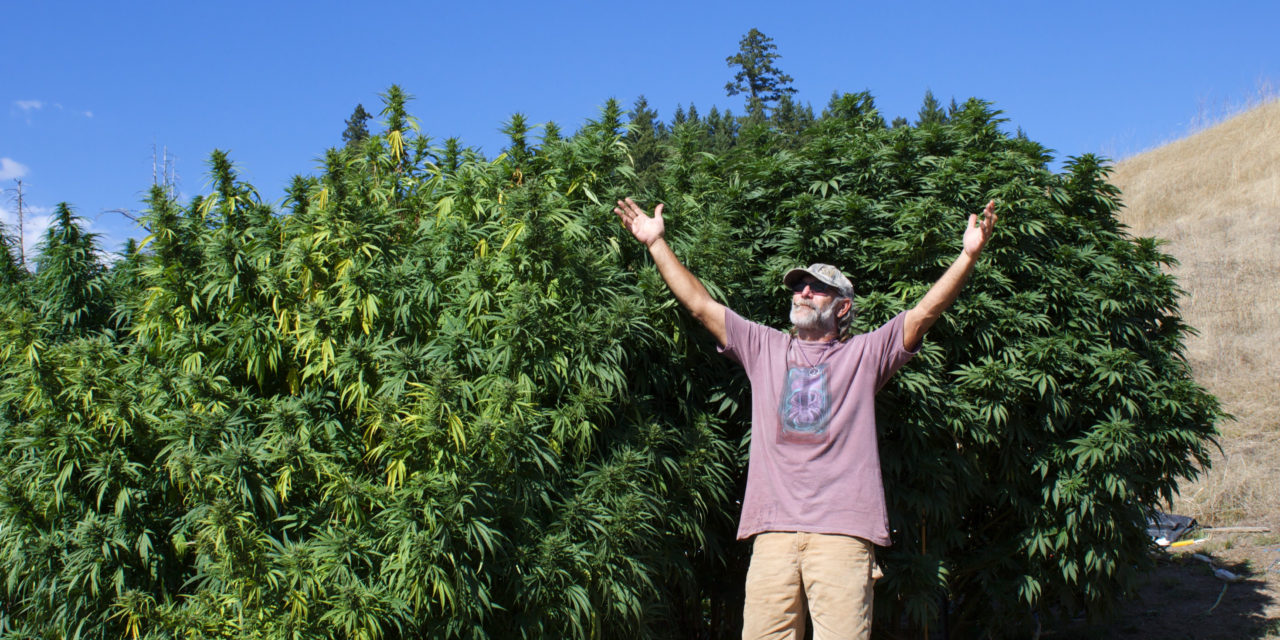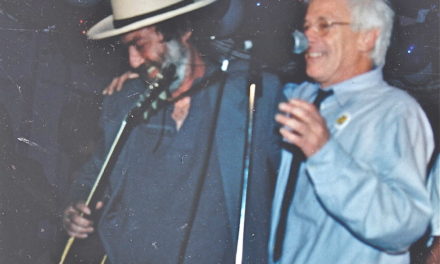By Omar Figueroa and Lauren Mendelsohn
You may have heard that California’s medical cannabis collective and cooperative defense will end on January 9, 2019. But what does that actually mean?
First, some history. In 1996, the voters of California passed a seminal initiative, Proposition 215, also known as the Compassionate Use Act. Proposition 215 gave medical cannabis patients and their designated primary caregivers limited immunity from prosecution for the possession and cultivation of cannabis. Back in those days, cultivation of a single cannabis plant, or the possession with the intent to sell any usable amount (even a smidgen), was a felony under California law, punishable by a sentence in the state prison.
In 2004, the California Legislature enacted the Medical Marijuana Program Act, also known as Senate Bill 420, which set up a system for state-issued medical identification cards which remains with us to this day. Senate Bill 420 also expanded protections for patients and designated primary caregivers “who associate within the State of California in order collectively or cooperatively to cultivate marijuana for medical purposes.” Here is the key provision in Senate Bill 420 which gave birth to collectives and cooperatives:
Health & Safety Code § 11362.775. Qualified patients, persons with valid identification cards, and the designated primary caregivers of qualified patients and persons with identification cards, who associate within the State of California in order collectively or cooperatively to cultivate cannabis for medicinal purposes, shall not solely on the basis of that fact be subject to state criminal sanctions under Section 11357, 11358, 11359, 11360, 11366, 11366.5, or 11570.
There were two “loopholes” to Health and Safety Code Section 11362.775. (For ease of reference, the term collective is used hereafter, and denotes both collectives and cooperatives.) First, there was no limitation on how many patients or caregivers could join a collective, which eventually led to numerous collectives with thousands of members. Second, there was no limitation on how many collectives a patient or caregiver could join, which led to the same result. Over the years, this morphed into the “collective / co-op model” where practically anyone with a medical cannabis recommendation could sign up to be a member of a medical cannabis collective and would then provide medical cannabis in exchange for “reimbursement” for expenses, ostensibly on a not-for-profit basis.
Under this model, with no regulation whatsoever from state authorities, and minimal, if any, regulation at the local level, the medical cannabis industry in California grew, multiplied, and thrived. Before the current era of regulated “commercial cannabis activity” which officially commenced on January 1, 2018, the cannabis industry in California was a vibrant example of laissez faire capitalism.
Health and Safety Code § 11362.775 was subsequently amended in 2016 when the Legislature passed the Medical Marijuana Regulation and Safety Act, with the unfortunate acronym MMRSA, which sounds like the deadly superbug Methicillin-resistant Staphylococcus aureus. MMRSA introduced a convoluted regulatory framework for medical cannabis which did not allow cultivators direct access to consumers; all transactions were to be mediated by licensed distributors.
In order to force medical cannabis operators into the regulated system, an expiration date was put on collectives and cooperatives (with a floating date of one year after the state started issuing state medical cannabis licenses), and thus a sunset clause was grafted onto § 11362.775. According to the Los Angeles Times, retired alcohol distribution executive Ted Simpkins “happened to own a distribution company that was lobbying heavily in Sacramento to craft the law the way he wanted.” Indeed, Politico Magazine reported in August 2016 in an article with the attention-grabbing headline How Big Alcohol is About to Get Rich Off California Weed, that, “During the 2015-16 state legislative session, Simpkins’ company [River Distribution], paid out $134,500 for lobbying of medical marijuana distribution.”
MMRSA was quickly rebranded MCRSA, the Medical Cannabis Regulation and Safety Act. After Proposition 64, known as the Adult Use of Marijuana Act (AUMA) passed resoundingly in late 2016 and established a similar, but different regulatory framework, regulators realized that they did not want to come up with two confusing sets of convoluted regulations, one for medical cannabis and one for adult-use cannabis. The Legislature ended up repealing the medical framework, and combining the two different regulatory frameworks into one unitary regulatory framework branded the Medicinal and Adult-Use Cannabis Regulation and Safety Act (MAUCRSA) which is currently in effect. Despite all of these changes, the sunset clause on collectives and cooperatives remained.
Health and Safety Code § 11362.775 currently reads, with emphasis added:
(a) Subject to subdivision (d), qualified patients, persons with valid identification cards, and the designated primary caregivers of qualified patients and persons with identification cards, who associate within the State of California in order collectively or cooperatively to cultivate cannabis for medicinal purposes, shall not solely on the basis of that fact be subject to state criminal sanctions under Section 11357, 11358, 11359, 11360, 11366, 11366.5, or 11570.
(b) A collective or cooperative that operates pursuant to this section and manufactures medicinal cannabis products shall not, solely on the basis of that fact, be subject to state criminal sanctions under Section 11379.6 if the collective or cooperative abides by all of the following requirements: […]
(c) For purposes of this section, “manufacturing” means compounding, converting, producing, deriving, processing, or preparing, either directly or indirectly by chemical extraction or independently by means of chemical synthesis, medicinal cannabis products.
(d) This section shall remain in effect only until one year after the Bureau of Cannabis Control posts a notice on its Internet Web site that the licensing authorities have commenced issuing licenses pursuant to the Medicinal and Adult-Use Cannabis Regulation and Safety Act (Division 10 (commencing with Section 26000) of the Business and Professions Code).
(e) This section is repealed one year after the date upon which the notice is posted pursuant to subdivision (d).
(Amended by Stats. 2017, Ch. 27, Sec. 140. (SB 94) Effective June 27, 2017. Repealed as of January 9, 2019, pursuant to its own provisions.)
The Bureau of Cannabis Control (BCC), the lead agency in charge of commercial cannabis licensing, issued a fact sheet about collectives and cooperatives in January of 2018 which included the following (with emphasis added):
MAUCRSA amended Health and Safety Code section 11362.775, the provision in SB 420 affording legal protection to cannabis collectives and cooperatives. This protection will end one year after the Bureau of Cannabis Control (Bureau) posts notice on its website that the state commercial cannabis licensing authorities have commenced issuing licenses. Once the one-year period tolls, all cannabis collectives and cooperatives that continue to engage in commercial business will need to be licensed, except for: (a) individual patients; and (b) caregiver gardens serving no more than five patients.
The Bureau posted the notice on its website on January 9, 2018. Thus, the protection against criminal sanctions for cannabis collectives and cooperatives ends January 9, 2019. At that time, cannabis collectives and cooperatives that seek to continue their operations will need to obtain a state license and comply with any local requirements.
January 9, 2019 is almost upon us, and soon, there will no longer be any medical collective or cooperative “defense” (technically a limited immunity from prosecution) to assert in criminal court in response to alleged violations of Health & Safety Code Sections 11357, 11358, 11359, 11360, 11366, 11366.5, or 11570. (Given enforcement trends, there are not many occasions to assert the defense in the criminal courts. After the passage of Proposition 64, there has been a drastic decrease in the number of felony marijuana arrests in California, from 13,300 felony arrests per year in 2014, to 2,086 in 2017, according to an analysis of the California Attorney General’s annual crime report for 2017 by California NORML.)
In theory, this leaves unlicensed cannabis businesses at risk of being raided and shut down by law enforcement, who could file criminal charges, including felony charges such as 11366.5 (Maintaining a Place) or conspiracy. Surprisingly, conspiracy to commit a misdemeanor can be prosecuted as a felony according to the California Court of Appeal decision in People v. Tatman (1993) 20 Cal.App.4th 1, a fascinating opinion stemming from an abalone poaching case in Mendocino County. (According to Tatman, this is justified on the theory that collaborative criminal activities pose a greater potential threat to the public than individual acts. “The division of labor inherent in group association is seen to encourage the selection of more elaborate and ambitious goals and to increase the likelihood that the scheme will be successful.”)
Moreover, in addition to criminal charges, civil penalties could also be imposed. Section 26038 of the Business and Professions Code, which was originally in the Adult Use of Marijuana Act (AUMA) / Proposition 64 and was amended by MAUCRSA, states (with emphasis added):
(a) A person engaging in commercial cannabis activity without a license required by this division shall be subject to civil penalties of up to three times the amount of the license fee for each violation, and the court may order the destruction of cannabis associated with that violation in accordance with Section 11479 of the Health and Safety Code. Each day of operation shall constitute a separate violation of this section. All civil penalties imposed and collected pursuant to this section by a licensing authority shall be deposited into the General Fund except as provided in subdivision (b). A violator shall be responsible for the cost of the destruction of cannabis associated with his or her violation.
(b) If an action for civil penalties is brought against a person pursuant to this division by the Attorney General on behalf of the people, the penalty collected shall be deposited into the General Fund. If the action is brought by a district attorney or county counsel, the penalty shall first be used to reimburse the district attorney or county counsel for the costs of bringing the action for civil penalties, with the remainder, if any, to be deposited into the General Fund. If the action is brought by a city attorney or city prosecutor, the penalty collected shall first be used to reimburse the city attorney or city prosecutor for the costs of bringing the action for civil penalties, with the remainder, if any, to be deposited into the General Fund.
(c) Notwithstanding subdivision (a), criminal penalties shall continue to apply to an unlicensed person engaging in commercial cannabis activity in violation of this division.
Under MAUCRSA, being sanctioned by a cannabis licensing agency and receiving a criminal conviction could both result in not being able to obtain a cannabis license in the future. Business and Professions Code Section 26057 states, in relevant part (with emphasis added):
(b) The licensing authority may deny the application for licensure or renewal of a state license if any of the following conditions apply:
…
(2) Conduct that constitutes grounds for denial of licensure under Chapter 2 (commencing with Section 480) of Division 1.5, except as otherwise specified in this section and Section 26059.
…
(4) The applicant, owner, or licensee has been convicted of an offense that is substantially related to the qualifications, functions, or duties of the business or profession for which the application is made, except that if the licensing authority determines that the applicant, owner, or licensee is otherwise suitable to be issued a license, and granting the license would not compromise public safety, the licensing authority shall conduct a thorough review of the nature of the crime, conviction, circumstances, and evidence of rehabilitation of the applicant or owner, and shall evaluate the suitability of the applicant, owner, or licensee to be issued a license based on the evidence found through the review. In determining which offenses are substantially related to the qualifications, functions, or duties of the business or profession for which the application is made, the licensing authority shall include, but not be limited to, the following:
(A) A violent felony conviction, as specified in subdivision (c) of Section 667.5 of the Penal Code.
(B) A serious felony conviction, as specified in subdivision (c) of Section 1192.7 of the Penal Code.
(C) A felony conviction involving fraud, deceit, or embezzlement.
(D) A felony conviction for hiring, employing, or using a minor in transporting, carrying, selling, giving away, preparing for sale, or peddling, any controlled substance to a minor; or selling, offering to sell, furnishing, offering to furnish, administering, or giving any controlled substance to a minor.
(E) A felony conviction for drug trafficking with enhancements pursuant to Section 11370.4 or 11379.8 of the Health and Safety Code.
…
(7) The applicant, or any of its officers, directors, or owners, has been sanctioned by a licensing authority or a city, county, or city and county for unauthorized commercial cannabis activities, has had a license suspended or revoked under this division in the three years immediately preceding the date the application is filed with the licensing authority.
…
(Amended by Stats. 2018, Ch. 92, Sec. 23. (SB 1289) Effective January 1, 2019. Note: This section was added on Nov. 8, 2016, by initiative Prop. 64.)
While moving towards a state-licensed commercial market is a positive achievement overall considering the drastic decrease in life-altering felony arrests and prosecutions, the unfortunate reality for many longtime California cannabis operators is that permits are not available in most parts of the state. Even in those cities or counties where local permits are available, suitable locations are limited, and competition is fierce.
Inevitably, many legacy businesses who were able to thrive in an unregulated market with minimal barriers to entry won’t be able to make it through the licensing process simply due to location, economic constraints, and lack of access to capital. Yet, those who want to do things legally and who don’t want to hurt their chances of obtaining a license in the future, including cannabis businesses that previously operated as collectives and cooperatives, must obtain the requisite local permits and necessary state licenses.
Does this mean that a crackdown on unlicensed operators could be on its way? Probably not, at least not according to Alex Traverso, spokesperson for the Bureau of Cannabis Control, who stated to Marijuana Business Daily that his agency “will continue to use a carrot-over stick approach and try to coax illegally operating collectives/co-ops into getting state licenses, instead of coming down hard on those without permits.” (Local jurisdictions also have enforcement authority and could in theory choose a far more aggressive enforcement posture than that reportedly telegraphed by the Bureau of Cannabis Control.)
How will the world end for most collectives and cooperatives? Not with a bang but a whimper. This was foreseen by immortal activist Mickey Martin, who predicted back in 2015 when the sunset clause was first unveiled that “the cannabis industry as you know it” would die a slow death.
As the midnight hour approaches, and medical cannabis collectives and cooperatives are about to turn from golden carriages into pumpkin coaches, it is worth recalling the many exhilarating, perilous, and unpredictable journeys travelled all across the Golden State by patients and caregivers aboard these soon-to-be-classic transports.
This information is provided as a public service and is not intended as legal advice. For specific questions regarding cannabis licensing and regulatory compliance in California, please contact the Law Offices of Omar Figueroa at (707) 829-0215 or info@omarfigueroa.com to schedule a confidential legal consultation. The featured image is courtesy of Lawrence Ringo.





